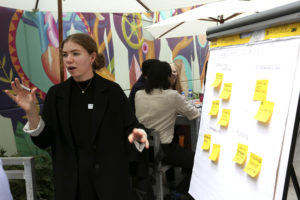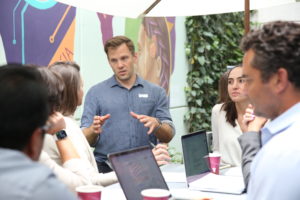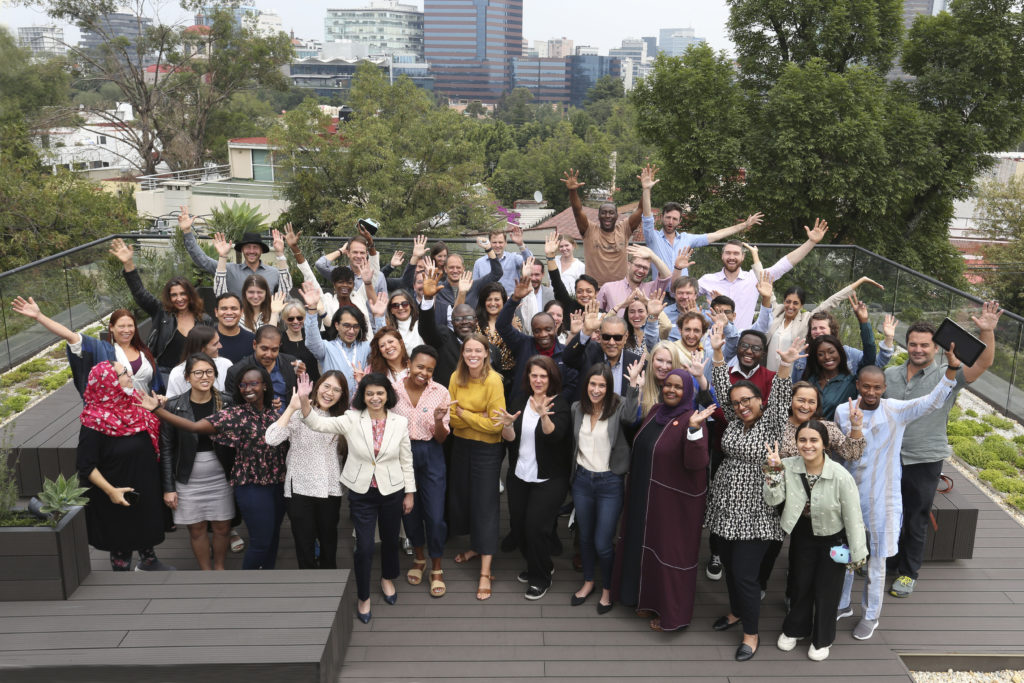Moonshots seem impossible—until they’ve hit their target. This was the mantra of our in-person accelerator workshop, hosted with our partners at Unlock Aid in Mexico City. The workshop was just one part of our larger accelerator process where we’re working with innovators to develop moonshots around global development targets. FAS’s largest policy-development convening to date brought together over 70 participants (representing 40+ organizations, 25+ countries, and six continents) to think through creative approaches for achieving the United Nations Sustainable Development Goals by 2030.

After years of Zoom calls, phone conferences, and emails, meeting our accelerator cohort in person was a refreshing change of pace. Connecting IRL enabled free-flowing collaboration on big issues like global water security, access, and safety. We saw convergence across organizations: City Taps, Drinkwell, and Evidence Action came together to create the “WaterShot”—a new approach to solving water access with an outcomes marketplace framework. We were reminded anew that policy is powered by people—and that strong interpersonal connections inevitably lead to better and more creative policy ideas.
Brainstorming at the event was inspired by remarks from global development leaders. Project Drawdown spoke about the Drawdown Framework for climate solutions, NPX Advisors demonstrated how to drive better outcomes with advanced market commitments, and Nasra Ismail, a leader in global development strategy, talked about the power of coalition building.

The workshop was an initial opportunity to expose global development experts to the idea that policy, like seed funding or infrastructure investment, is an input that supports scaling. Most individual innovators are understandably hyper-focused on scaling up their individual ideas or products. But good policy is needed to build a flourishing global development environment—a rising tide that lifts all entrepreneurial ships. An underlying theme of the Mexico City workshop was the importance of policy as a growth enabler.
Now that we’re back in DC and over our jetlag, the accelerator continues, and we’re working with workshop participants to inform policymakers on key priorities for global development policy. We’re thinking about pain points in the field and opportunities for systems change, including earmarking funds for innovation, uplifting and incorporating community voices to policy, and setting new standards that focus on results.
The field of global development can be individualized and competitive—grants are few and far between, which doesn’t always foster shared best practices. But achieving the SDGs by 2030 must be a collaborative effort. Problems like climate change and food security are more pressing than ever, and they require an entirely new way of thinking about global development—finding and building on opportunities from proven results. Later this fall, look out for our participants’ moonshot memos as we roll them out. And if you have an idea about meeting the SDGs with a moonshot—or something else—why not submit it? Aiming at the moon is one thing, but getting there takes dedicated and sustained collaboration, and we’re so honored that these daring organizations want to work with us to do just that.

The Philanthropy Partnerships Summit demonstrated both the urgency and the opportunity of deeper collaboration between sectors that share a common goal of advancing discovery and ensuring that its benefits reach people and communities everywhere.
We’re launching a national series of digital service retrospectives to capture hard-won lessons, surface what worked, be clear-eyed about what didn’t, and bring digital service experts together to imagine next-generation models for digital government.
In a year when management issues like human capital, IT modernization, and improper payments have received greater attention from the public, examining this PMA tells us a lot about where the Administration’s policy is going to be focused through its last three years.
Congress must enact a Digital Public Infrastructure Act, a recognition that the government’s most fundamental responsibility in the digital era is to provide a solid, trustworthy foundation upon which people, businesses, and communities can build.